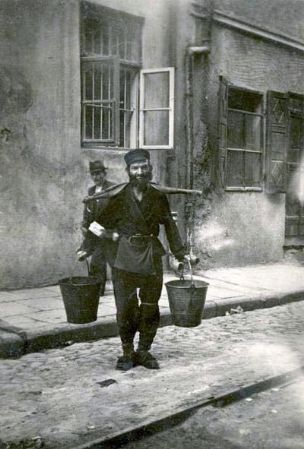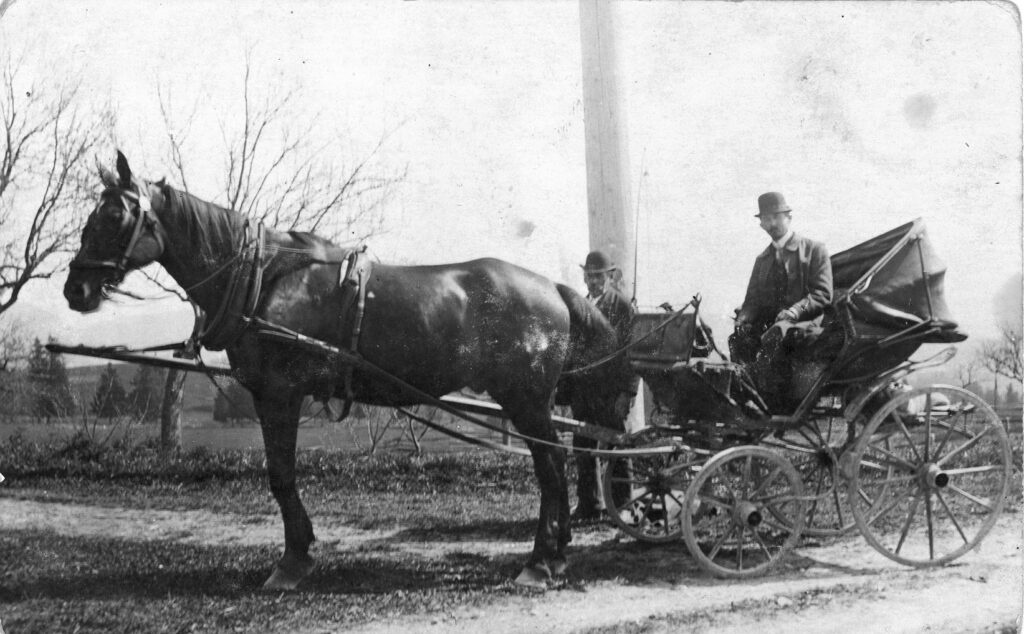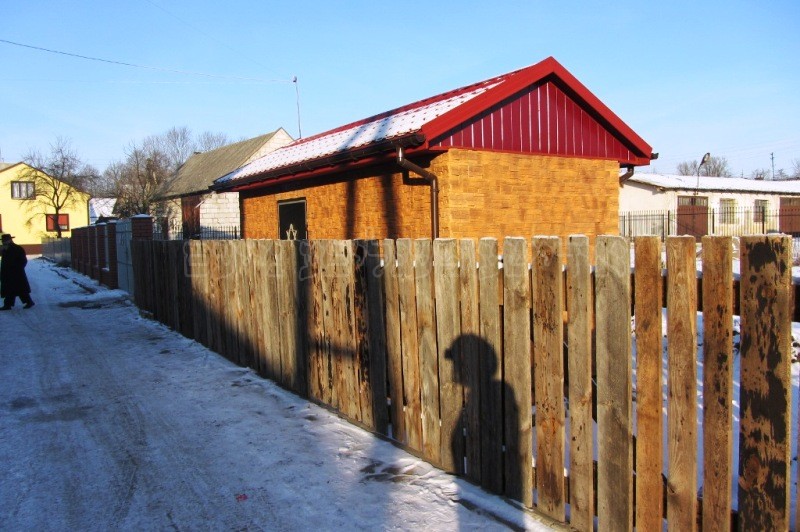With His Love and With His Compassion, He Redeemed Them (Isaiah 63:9)
Upon the yahrzeit (anniversary of death) of Rabbi David of Lelow. 210 years since his passing.
By: Yaakov Rosenfeld, Ganzach Kiddush Hashem
The righteous Rabbi David of Lelow, known as an exceptional lover of the Jewish People, used to stop in every village he passed, enter, and ask if there was a Jew there. And if he was answered in the affirmative, he would enter the Jewish home to check on the Jew’s well-being, to be moved with him as with a long-lost brother, and to enlighten his heart with faith and trust in G-d, Torah and chassidism.
The Jew – who at first did not understand how he was visited by the good angel – would listen with an open mouth and attentive ears to Rabbi David’s warm words, which infused him with a dew of encouragement, and would take it upon himself to draw closer to his Father in Heaven. Then the Rabbi wished him many blessings, and continued to the region he intended on going to.
Well, what small town didn’t have a wandering Jewish boy living in it? Indeed, Rabbi David’s travels took a long time, but in doing so he gained many Jewish souls. He revealed precious diamond stones, which would not be dissolved in gold; pure souls whose brilliance have reached the throne of honor. This is how Rabbi David brought back countless Jewish children to Judaism and closer to their Heavenly Father.

A water carrier in Lublin
Once, on the way to his grandson’s wedding, Rabbi David went to Lublin, and stopped in the city of Wadyslaw. As was his custom, he entered one of the villages around the city, to look for Jews, and a terrible picture was revealed to his eyes: the paritz (Polish estate owner whom Jews had to pay taxes to in exchange for protection), whose Jew had not paid him the rent for a long time, tied the Jew and his wife to the end of a carriage and drove the horses through the muddy streets of the village. If G-d forbid they fell, they would remain lying down forever… The paritz in those days did with his subordinates as his barbaric mind dictated, who dared to challenge him, to express an opinion to him?
When Rabbi David the righteous man saw the horrible spectacle, he waved his hand at the paritz to stop. The paritz, out of curiosity, ordered the coachman to stop the horses.

Rabbi David expressed his desire to pay the debt on the condition that the paritz freed the poor couple. One hundred and fifty rubles, that was the amount of the debt. “I don’t have this amount here and now, but I am the rabbi of the town of Lelow. I will write you a promissory note and soon I will repay you the full amount.”
The paritz was not stupid. He knew that dragging the Jews under his carriage would not bring money, so he agreed to the condition and immediately released the couple to their home.
Rabbi David did not stay with them too long. After showering them with blessings and words of encouragement, he continued on his way to Wadyslaw, where the Chozeh from Lublin rabbi was already waiting for him, outside the carriage that would take them to Lublin, for the wedding.
All the while that Rabbi David was conducting the negotiations with the paritz, the Chozeh stood with one foot on the carriage step and the other on the ground, absorbed in his holy thoughts. The relatives were already waiting for the Chozeh of Lublin to get on the carriage to continue the journey to the wedding, but no one dared to disturb the rabbi who was deep in thought until his student Rabbi David arrived. The Chozeh of Lublin greeted him with open joy and assured him that he would see to it that the debt to the paritz was paid.
The paritz had a wool business. He used to sell his sheep’s wool to the same trader every year at a fixed price. A few days after the incident with Rabbi David of Lelow, the paritz succeeded in trading, and sold the wool at a profit – 150 rubles more than every other year!
The paritz understood that Rabbi David was immersed in the matter. As much as the paritzes hated the Jews, and as much as they rejoiced at every opportunity that came before them to persecute the Jews, they knew very well that, unlike their priests, the righteous Jews are G-dly people who have a say in Heaven.
When the paritz came to this conclusion, he thought to himself: maybe the rabbi could really do miracles, maybe he could also heal my mute son, who has not spoken a word for several years, since his birth?
He thought and he did. The paritz called his workers to fill his carriage with all good things and together with his son he went to the wonder man in the town of Lelow.
In Lelow, he asked the local Jews where the Rebbe lived, but in response he was met with suspicious looks. They did not know what brought the paritz to their beloved rabbi and did not rush to give him information. The Fritz understood their suspicion, which considering the circumstances of the time was quite justified, and showed them his cart full of the best: fattened chickens and geese, fruits and vegetables, walnuts and almonds, “all for the righteous man.”
At the sight of this fine merchandise, the Jews softened and instructed the paritz where the home of Rabbi David of Lelow was. The paritz saw the small, poor house, sparsely furnished, which had neither glory nor splendor, and he was confused:
How strange are the Jewish multitudes! So many are the dawns before them, and in such poverty they live.
The paritz went inside, took out the promissory note, tore it to pieces in front of everyone, and told about what he had earned from the leather business. “The debt is paid!” he declared, “but I have one request of you, holy Rabbi. My only son, here he is before you. He is big and developed, as your eyes can see, but he does not open his mouth. A word has not come out of his mouth since he was born. A word, after all, He has it in Heaven, thus I came to see. Please pray for my only heir, G-d will surely hear his prayer.
Rabbi David turned his face to the wall and prayed in Yiddish, saying:
“Master of the Universe! So many dogs bark in the Your world. Another dog should bark!”
And there, as Rabbi David finished his prayer, the boy began to speak as one of the people. The paritz didn’t know what to do with himself for joy. He went outside, unloaded the large shipment he had brought as an offering to the Rebbe, and since then he did not stop telling his paritz friends about the greatness and holiness of the salvation worker, the righteous Rabbi of Lelow.
Even after the passing of Rabbi David of Lelow, gentiles would come and place their requests at the grave of the salvation worker, who in his life wandered endlessly in the towns and villages of Poland, in search of Jewish souls thirsty for encouragement, strength, and blessing.

The grave of Rabbi David of Lelow z”l (Amram Bilaadi)







